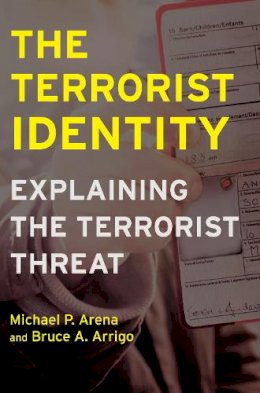
The Terrorist Identity. Explaining the Terrorist Threat.
Michael P. Arena
Who would strap a bomb to his chest, walk into a crowded subway station and blow himself up? Only by examining how a terrorist understands his own identity and actions can this question be answered. The authors of The Terrorist Identity explore how the notion of self-concept combined with membership in terrorist and extremist groups, can shape and sustain the identity of a terrorist as well as their subsequent justification for violence and the legitimacy of their actions.
The book provides an understanding of identity that draws on concepts from psychology, criminology, and sociology. Notably, the book examines several case studies of various terrorist groups, including: the Provisional Irish Republican Army, Hamas, the Shining Path, the Liberation Tigers of Tamil Eelam, and racist Skinheads. By making the construct of identity central to this analysis The Terrorist Identity explains how violent and extremist collective behavior emerges culturally, how it informs the identity of group members socially, and how participants assume their place in these groups completely even at the expense of life-threatening harm to others or to themselves.
Product Details
About Michael P. Arena
Reviews for The Terrorist Identity. Explaining the Terrorist Threat.
Lynne Snowden,co-author of Collective Violence "The authors argue that terrorists can be better understood using the ‘growing body of research known as the sociology of terrorism and, in particular, through the lens of ‘structural symbolic interactionism, which explains aggression by focusing on how group identity is formed at the individual level."
Brian Forst
Theoretical Criminology
"The overall quality of this book is astonishing, the ease of reading and the depth of theoretical knowledge, equally impressive. It is a valuable contribution to the terrorism literature and of such quality that it will be quoted, used, debated, and confronted by researchers for years to come. This book represents a vanguard of sociological thought on this subject and is a much needed voice in the debates on terrorism."
James David Ballard,author of Terrorism, Media, And Public Policy: The Oklahoma City Bombing "The interpretive framework presented offers students of political violence a highly accessible template from which to study the sociopsychological reasons individuals are drawn into terrorist groups, and how the groups themselves act to reinforce the identities of their members. . . . The authors are to be commended for producing a model with such tremendous analytical clarity and pedagogical utility."
Choice, Highly Recommended
